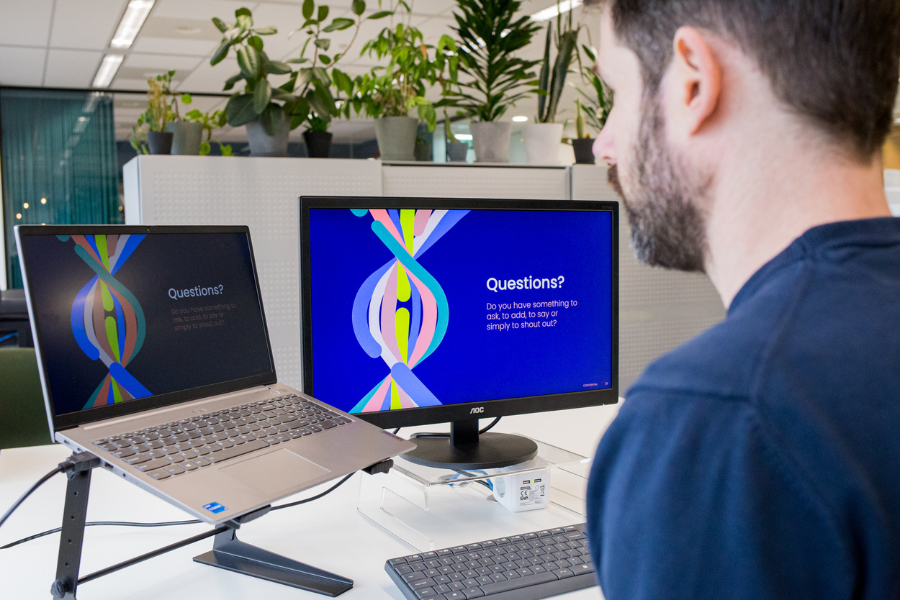Going blended: 3 key success factors for training providers

If you’ve been around for some time as a training provider, you’ve probably built your success on being exceptionally good at creating and delivering classroom training. And while learners and customers still value that quality face to face time with a great teacher and fellow learners, they also expect a seamless digital experience around it and an efficient use of their precious time.
Many training providers have made the step towards offering fully blended learning experiences in the past years and now reap the benefits by offering the best of both worlds. Belgium based training provider Amelior is one of them.
Whether you’re looking to go from classroom to blended learning or want to offer your learners a more cohesive blended experience than you’re currently able to, there’s a lot you can learn from their story. In this article, we'll highlight the three key factors that helped Amelior make the leap successfully.
If we were to summarise Amelior’s success story into a few key takeaways you can use for your next blended learning adventure, it would be the following:
Start small and iterate; Rome wasn’t built in a day
Internal buy-in and alignment is key to success
Don’t be afraid to ask for help
Here’s a quick teardown of each of these takeaways, so you can put them into effect yourself.

Keep things small and easy to manage
Amelior hadn’t tried anything like this before. One takeaway from the award-winning success of this project is that you have to start small. Starting small and iterating often helps you:
Minimise variables
Stay laser-focussed
Incorporate learnings early on
If a whole training program sounds too daunting, try taking one module or topic and incorporating blended learning in it as a test.
Amelior purposefully started with one single training program, and fully committed to transforming it well. This gave them the necessary focus needed to succeed.

Get people on board with change
Trying something new for the first time is scary. But getting people excited can go a long way. Amelior’s subject matter experts (SMEs) came with several years of experience in their domain, but with little exposure to digital learning technology.
These SMEs were crucial for a successful move towards blended learning. Addressing and taking away their suspicions, fears and hesitations was a huge challenge.
Assuring them technology would enhance the impact and reach of their training, helped create buy-in and alignment. Keep this in mind when you set out on your next blended learning adventure.
Solutions
As for the SMEs involved, luckily, their anxieties didn’t become a reality. Instead of diluting their expertise, the blended approach gave them the space to focus on the parts of the course that really mattered.
And although not every participant completed all the e-learning modules every single time, some SMEs mentioned that this, too, could easily be overcome by getting them to complete those modules later. Clearly, they recognised the potential of the e-learning material to support in-class learning.
Due to the consideration that went into selecting the modules best suited for online learning, finding the right balance between online and offline teaching resolved itself, naturally.
“Blended learning is the perfect cross-pollination approach for skill development.”

Work together as a team
You don’t need to revamp your training content alone. We realise it’s not always easy to fit existing content to a hybrid learning model. Amelior had this realisation, too.
Which is why they also relied on the expertise of professionals – both internal and external – to create a truly immersive, interactive learning experience. Don’t be afraid to ask for help where necessary. It takes a village, after all!
Just know that in the end, it’s worth it. If anything, take the following quote by Karin Bastiaannet to heart:
“Blended learning not only maximises the value of the subject matter expert, but also maximises the knowledge and experience of learners. It’s the perfect cross-pollination approach for skill development.”
What's your next step in(to) blended?
Take these key factors to heart and you'll increase your own chances of a successful journey towards (better) blended learning. So what's your next step? Ready for some more inspiration? We've got you covered!



